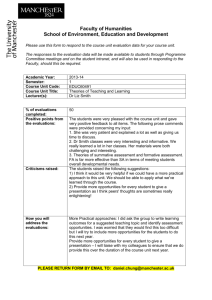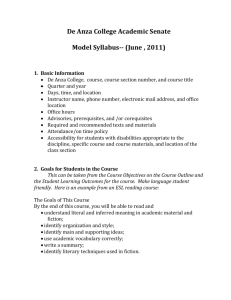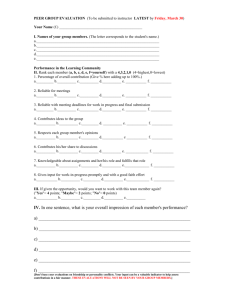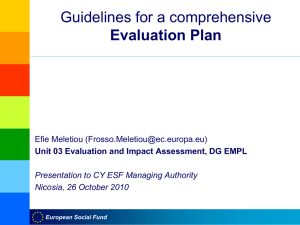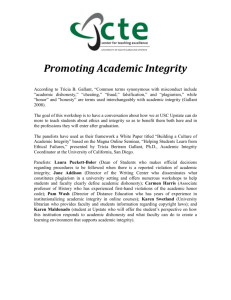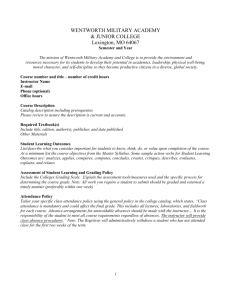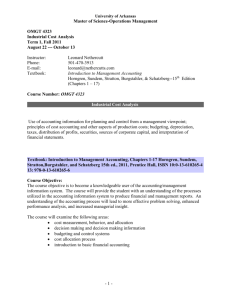Good afternoon Academic Integrity Task Force (AITF for short), Our
advertisement
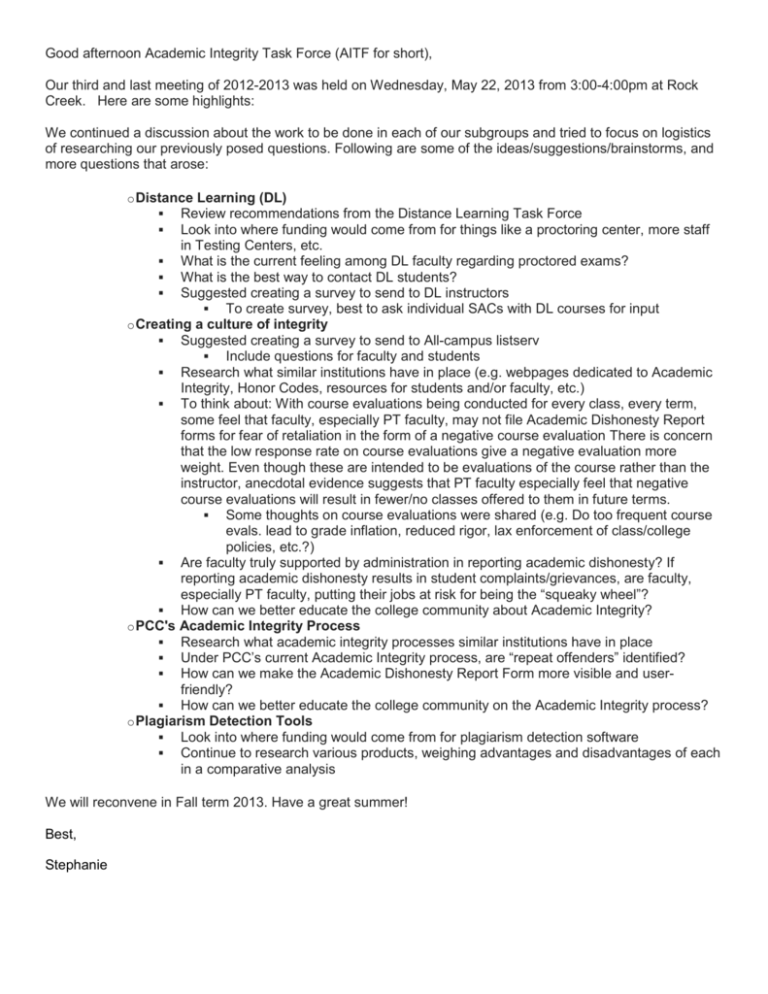
Good afternoon Academic Integrity Task Force (AITF for short), Our third and last meeting of 2012-2013 was held on Wednesday, May 22, 2013 from 3:00-4:00pm at Rock Creek. Here are some highlights: We continued a discussion about the work to be done in each of our subgroups and tried to focus on logistics of researching our previously posed questions. Following are some of the ideas/suggestions/brainstorms, and more questions that arose: o Distance Learning (DL) Review recommendations from the Distance Learning Task Force Look into where funding would come from for things like a proctoring center, more staff in Testing Centers, etc. What is the current feeling among DL faculty regarding proctored exams? What is the best way to contact DL students? Suggested creating a survey to send to DL instructors To create survey, best to ask individual SACs with DL courses for input o Creating a culture of integrity Suggested creating a survey to send to All-campus listserv Include questions for faculty and students Research what similar institutions have in place (e.g. webpages dedicated to Academic Integrity, Honor Codes, resources for students and/or faculty, etc.) To think about: With course evaluations being conducted for every class, every term, some feel that faculty, especially PT faculty, may not file Academic Dishonesty Report forms for fear of retaliation in the form of a negative course evaluation There is concern that the low response rate on course evaluations give a negative evaluation more weight. Even though these are intended to be evaluations of the course rather than the instructor, anecdotal evidence suggests that PT faculty especially feel that negative course evaluations will result in fewer/no classes offered to them in future terms. Some thoughts on course evaluations were shared (e.g. Do too frequent course evals. lead to grade inflation, reduced rigor, lax enforcement of class/college policies, etc.?) Are faculty truly supported by administration in reporting academic dishonesty? If reporting academic dishonesty results in student complaints/grievances, are faculty, especially PT faculty, putting their jobs at risk for being the “squeaky wheel”? How can we better educate the college community about Academic Integrity? o PCC's Academic Integrity Process Research what academic integrity processes similar institutions have in place Under PCC’s current Academic Integrity process, are “repeat offenders” identified? How can we make the Academic Dishonesty Report Form more visible and userfriendly? How can we better educate the college community on the Academic Integrity process? o Plagiarism Detection Tools Look into where funding would come from for plagiarism detection software Continue to research various products, weighing advantages and disadvantages of each in a comparative analysis We will reconvene in Fall term 2013. Have a great summer! Best, Stephanie


